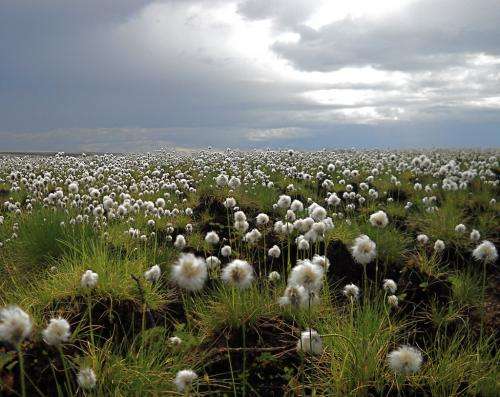Hot issues in climate change research to be debated at AAAS Annual Meeting

The "big issues" in climate change science have shifted over the past 4 to 6 years, with several difficult problems resolved while new research challenges rose to the fore. Scientists who are leading advisors on climate change to federal and international policymakers will examine the state-of-the-science in "Research Challenges in Climate Change: What's New and Where are We Going?" on Feb. 14 at the American Association for the Advancement of Science (AAAS) Annual Meeting in Chicago.
"The session will be very forward looking. What we would like to do better to serve both science and the public in addressing climate change?" says co-organizer Jerry Melillo, distinguished scientist at the Marine Biological Laboratory in Woods Hole, Mass., and chair of the federal advisory committee that prepared the Third U.S. National Climate Assessment (NCA) for release this spring.
The panel will offer a scientific reckoning of issues resolved and uncovered in preparing the NCA over the past four years, as well as the Fifth Assessment Report of the Intergovernmental Panel on Climate Change (IPCC), released in late 2013. The NCA details climate change impacts in United States regions and sectors, while the IPCC's assessment is global.
The panel will be led by atmospheric scientist Donald J. Wuebbles of University of Illinois, a coordinating lead author in the IPCC report and a leader in the NCA. "The science continues to show that the climate is changing, that it is changing primarily because of human-related emissions, and that it will continue to change over the coming decades as a result of such emissions," Wuebbles says. "I developed this session so that we would not only look at what the science is telling us, but also to examine what further knowledge is needed to better understand the potential impacts of these changes on humanity and our planet."
The thousands of scientists who contributed to the two assessments have gained considerable insight on complex climate change issues.
"The question of how much climate change was responsible for extreme weather events—such as hurricanes, droughts, downpours—was a major focus for us," Melillo says. "We have made real progress in quantifying the relationship between climate change and extreme weather. Part of the story is that climate change alters the context for any weather event now, but we still have much to learn." Understanding of ocean acidification and its consequences, Melillo says, has also improved.
Among the scientific issues that still loom large, and are likely to generate discussion at the AAAS panel, are:
- Downscaling predictions of climate change to smaller geographic units, such as a county or municipality, so public and private decision-makers can prepare for the impacts. What are the pros and cons of various approaches to downscaling?
- Reliably predicting extreme weather events.
- Assessing environmental problems that have multiple drivers or factors, and attributing the relative contribution of those factors to the outcome.
- Adapting to climate change impacts; quantifying the benefits and costs of adaptation; evaluating the efficacy of various adaptation measures; and understanding what spurs action on and acceptance of adaptation measures. Several of these topics will require new partnerships between natural and social scientists.
"We want to bring forward as rich a discussion as we can about these challenges, both among the speakers and with the audience," says Melillo.
Provided by Marine Biological Laboratory


















